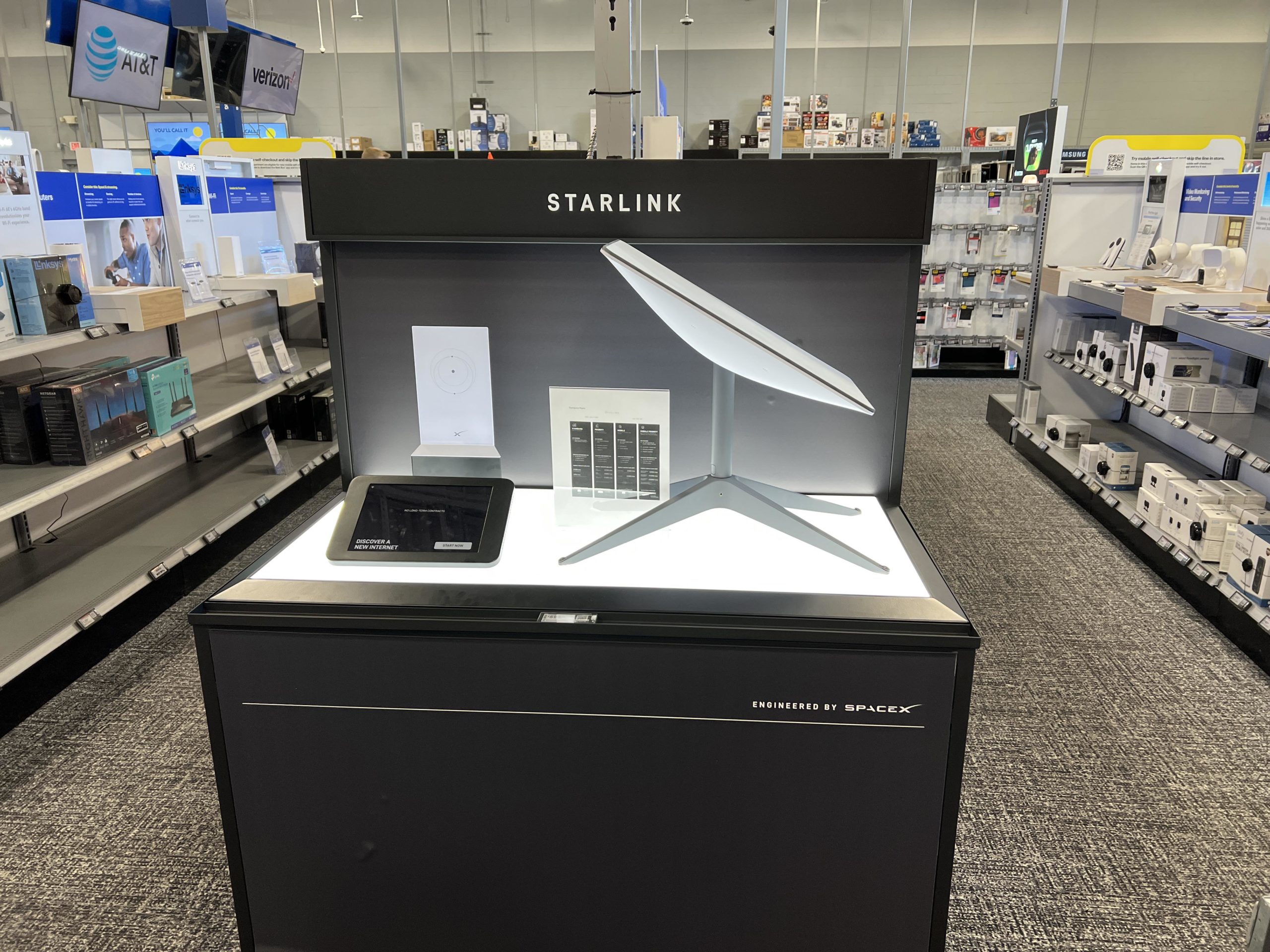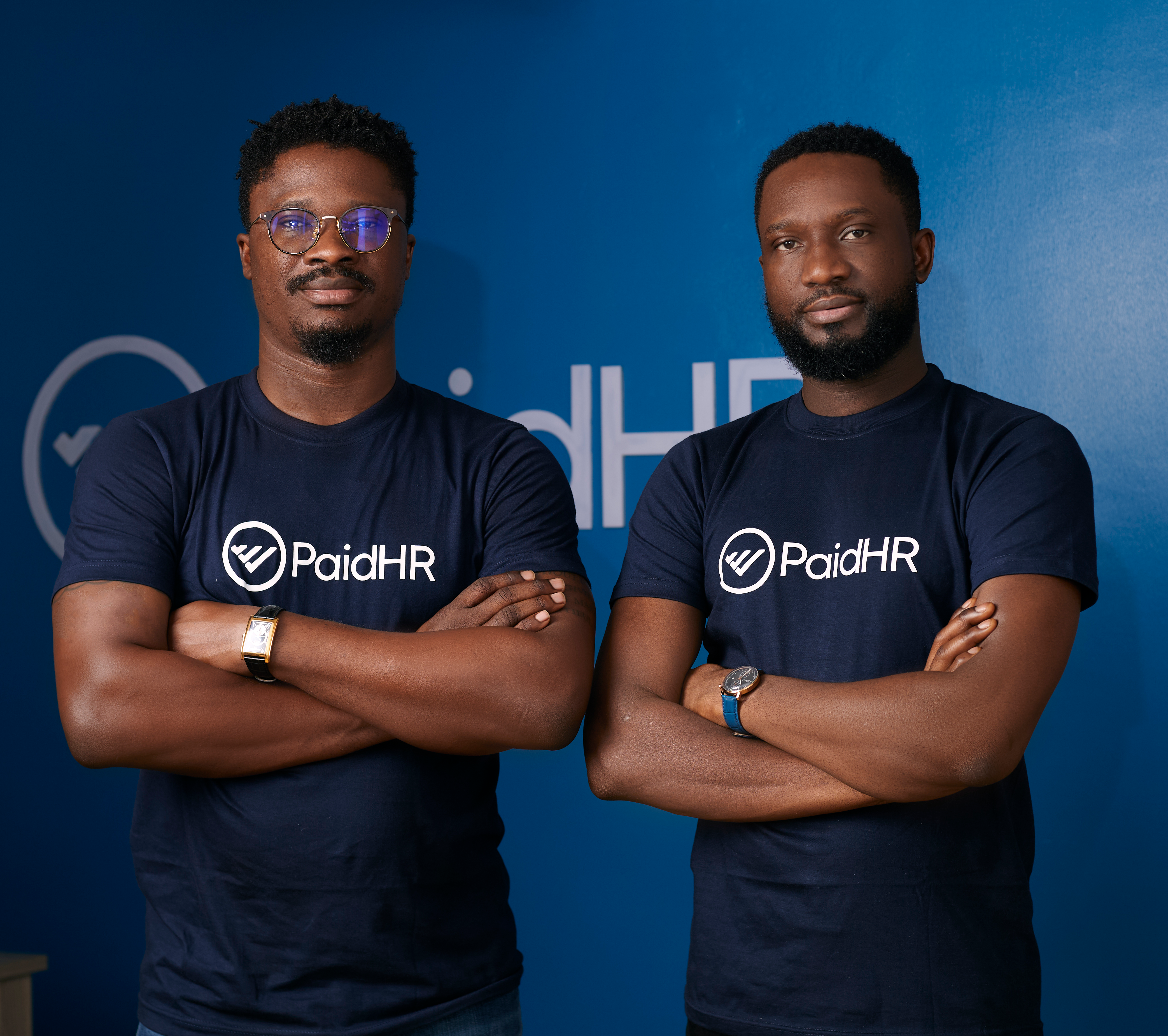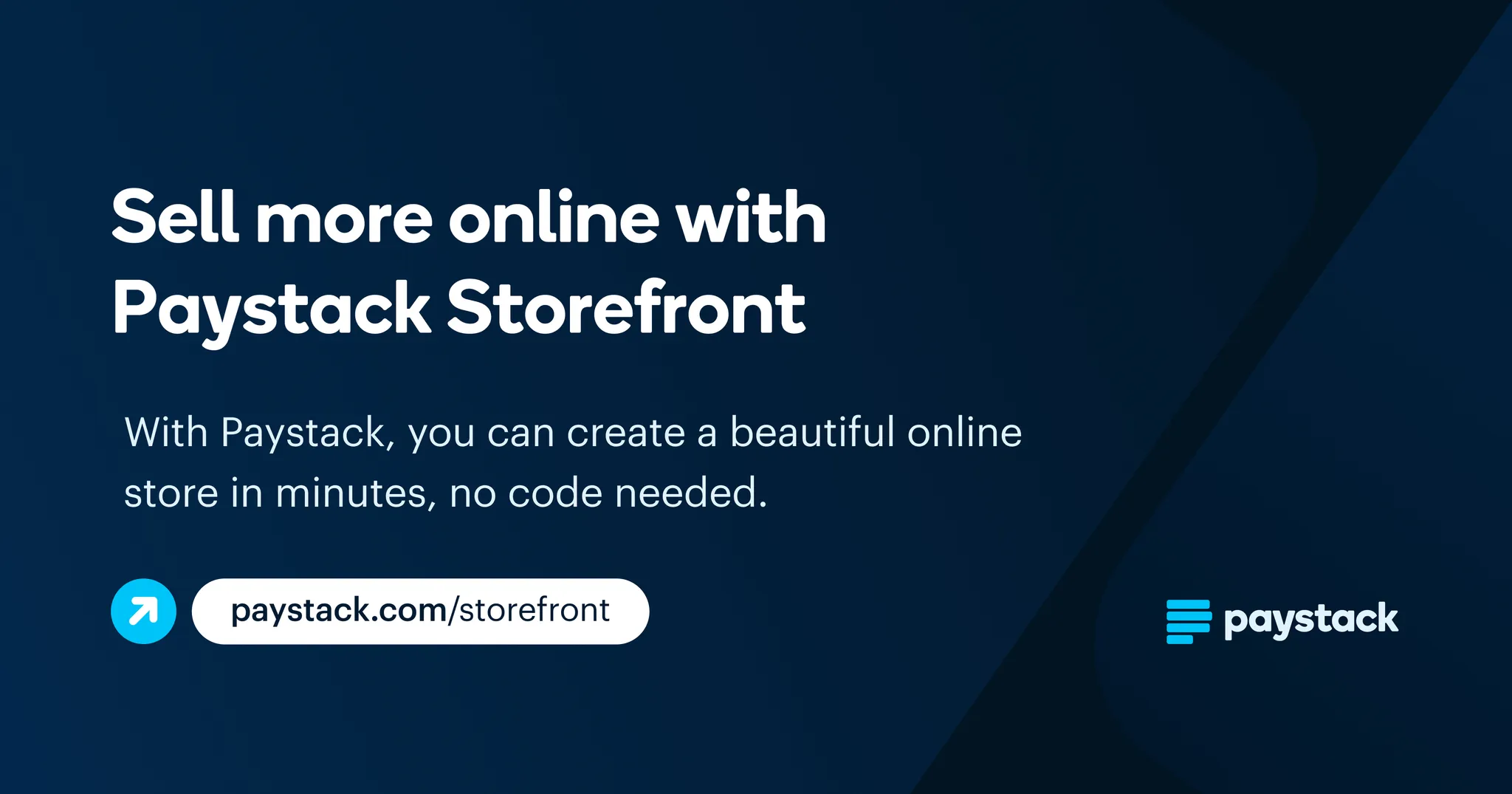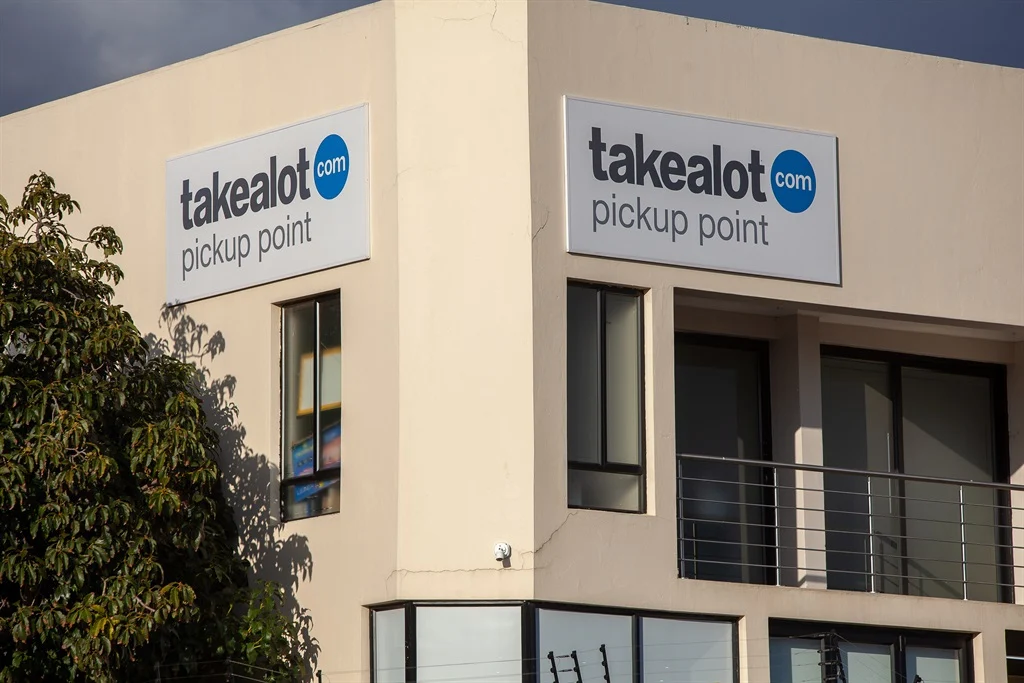Technology
👨🏿🚀TechCabal Daily – Starlink is live (again) in Kenya
In partnership with Lire en Français اقرأ هذا باللغة العربية Happy salary week! Yesterday, our reporter, Muktar Oladunmade published an important article about Silverbacks Holdings and how the investment firm has found remarkable success backing growing startups in Nigeria. Silverbacks has benefi...
TechCabal
published: Jun 24, 2025



Happy salary week! 
Yesterday, our reporter, Muktar Oladunmade published an important article about Silverbacks Holdings and how the investment firm has found remarkable success backing growing startups in Nigeria.
Silverbacks has benefitted from profitable exits in LemFi and OmniRetail in recent months. So, if you find yourself wearily asking, “Where are the exits?”, that article could provide a few pointers on how some investors are still spotting and backing rocketships.
With that, let’s get into today’s dispatch.
– Emmanuel.

Internet
Starlink is live (again) in Kenya

We wonder what the mood in Kenya is like now that Starlink has quietly resumed operations in the country.
Seven months ago, Starlink, the satellite internet service provider (ISP) owned by Elon Musk, shut down activations and new user sign-ups on its app due to network congestion. As more people were buying Starlink kits in Kenya, this became problematic because the system’s capacity was built to support only a limited number of users in each satellite coverage area, and it quickly became overloaded.
As of June, Kenyans in several affected regions have confirmed the satellite ISP is back online, promising rural coverage and speeds of up to 100 megabytes per second (Mbps).
Starlink coming back likely means it has fixed its network issues and can now handle more users. People in rural areas can sign up again and expect faster, more reliable internet.
Yet, Starlink faces turbulence ahead. Kenya’s regulators are mulling plans to hike licence fees for satellite ISPs by tenfold to $155,331 and introduce a 2% levy on their turnover. This will increase operating costs for smaller players, but for Starlink, the bigger concern may be sustainability. If regulatory pressure mounts and demand again outpaces capacity, users could end up paying premium prices for unreliable service.
And let’s not forget: Starlink has no Kenyan office, no hotline, no repair vans—just an app, a dish, and Elon Musk’s Twitter feed. Customer support is often a black hole, as some users found during last year’s outage.
For now, Starlink is back—and it will be re-igniting the chase in Kenya’s ISP market.
Save more on every NGN transaction with Fincra

Stop overpaying for NGN payments. Fincra’s fees are more affordable than other payment platforms for collections & payouts. The bigger the transaction, the more you save. Create a free account in 3 minutes and start saving today.
M&A
Chowdeck acquires Mira to strengthen its grip on food delivery

Since 2024, Chowdeck has crossed 1 million users, expanded to more cities across Nigeria, integrated AI services in its customer service operations, and expanded its operations to Ghana.
And now? Nigeria-born on-demand YC-backed delivery platform has acquired Mira, the point-of-sale startup founded in 2023.
The amount of the deal? Undisclosed. But what’s clear is that Chowdeck isn’t just delivering food anymore. The deal adds Mira’s inventory management, in-store payments, and financing tools to Chowdeck’s arsenal.
Why does this matter? Chowdeck wants to embed itself into the heart of its vendors’ operations. This shift is key, especially in the delivery market where margins are thin, competition is brutal, and last-mile economics are rarely kind. By expanding into point-of-sale services, payment processing, and inventory financing, Chowdeck opens up new revenue streams beyond delivery fees and positions itself as a core infrastructure provider for restaurants and retailers.
With Mira co-captaining, Chowdeck goes from last-mile courier to merchant command centre. That’s fewer cancelled orders, better data, new revenue streams, and a business that’s harder to copy.
We’ve seen similar moves elsewhere. In Nigeria, Glovo teamed up with Salad Africa to give vendors loans. Piggyvest also bought a food aggregator to secure payments from food businesses. While Chowdeck is in the ring with Glovo, FoodCourt, and other delivery players, scaling a POS business puts it on a new collision course with fintech giants like Moniepoint, which recently acquired a POS outfit to chase retail merchants. Chowdeck is now fighting in two rings: food delivery and merchant infrastructure. That’s a much bigger bet.
Zoom out: Food delivery in Africa has long been written off as a race to the bottom due to the brutal macro challenges that have forced out the likes of Bolt Food and Jumia Food. But if this plan works, Chowdeck won’t just survive the delivery war; it might very well become the blueprint for how to win them.
Order physical Paga cards, spend with confidence.

Tired of declined payments? Avoid the side-eyes at the cash till with Paga’s physical prepaid card. Designed to give you control, security, and ease. Fund and spend with confidence. Get yours today!.
Funding
PaidHR just bagged a $1.8 million seed round

PaidHR, the Nigerian HR-tech startup, has closed a $1.8 million seed round, topping off a fundraising journey that started with a $1.5 million target back in October 2024.
This funding round was led by Accion Venture Lab, with participation from Zrosk, Chui Ventures, and Zedcrest Capital. With the new funding, PaidHR plans to grow its market share in Nigeria, speed up product development, and grow its customer success team. This brings PaidHR’s total raise to $2.9 million.
For competitors like SeamlessHR and Bento, it means a new kind of pressure. PaidHR isn’t playing catch-up anymore; it’s building momentum.
PaidHR hasn’t exactly stayed in its lane. Over the past year, it’s added cross-border payroll in 49 currencies, rolled out an employee wallet that processes $835,134 monthly, and most recently, dipped into fintech territory with bill payments and airtime top-ups built into the wallet features.
The HR-tech ecosystem isn’t exactly investor catnip, certainly not compared to the fintech sector that sees a lot of investment. But PaidHR is the exception in a sector that’s otherwise gone quiet. While startups like Bento have gone dark and others are stuck in survival mode. So, maybe investors are backing the right horse, not because the HR-tech ecosystem is particularly hot.
Investors are watching closely because of PaidHR’s momentum. In 2024, it processed $18 million in salaries across 200+ businesses.
The big picture? HR in Africa is seeing a shift. PaidHR isn’t just part of that shift; it wants to lead it. And now, it has the fuel to try. Will competitors double down or get drowned out?
Turn your hustle into an online business with Paystack!

Anyone can sell online. With Paystack Storefront, you can create a sleek online store, share your link, and accept payments. No code needed. Get started here →
Ecommerce
Naspers-owned Takealot and Mr D hit $836 million in revenue, but they are still not in the green

Takealot Group, owned by South African internet giant Naspers, reported a R2.5 billion ($139 million) jump in its revenue, pushing total group revenue to nearly R15 billion ($836 million) for the financial year ending March 2025.
Takealot Group, which includes its leading online retail platforms Takealot and Mr D, recorded a 15% increase in revenue but still reported a loss. Here’s the breakdown:
- Takealot grew revenue 17% to R12.9 billion ($719 million).
- Mr D climbed 8% to R2.1 billion ($117 million).
- Mr D’s grocery division saw GMV grow by 81%.
- The group’s adjusted earnings before interest and taxation (aEBIT) also declined to R219.4 million ($12 million) in the red; this was due to heavy spending on marketing and logistics.
- Gross margins improved by 1%, showing better product mix and cost controls.
- TakealotMore, the loyalty programme, drove frequent orders.
Why are they spending so much? Competition. For example, Amazon, which entered South Africa in 2024, recently added pet food and grocery delivery to its listing, infringing on Takealot’s space. The likes of Shein and Temu have also been competing aggressively in the country’s cutthroat market. Takealot is responding by scaling up logistics, improving delivery times, and expanding its product categories. The company sold Superbalist to refocus, and quietly acquired M24 Logistics to strengthen its capacity for delivery fulfillment.
Artificial intelligence is central to this plan. Naspers says Takealot is using AI for stock forecasting, fraud monitoring, and productivity tools. This includes training an “AI-first workforce” to improve operations.
So what does this mean for shoppers? You can expect quicker deliveries, more discounts, and better service as online stores compete to win you over. TakealotMore, the subscription programme, could offer more value for regular buyers. With more players entering the e-commerce space, it looks like customers will benefit from the turf war.
Introducing, The Naira Life Conference by Zikoko

This August, the Naira Life Con will bring together wealth builders, entrepreneurs, financial leaders, and everyday Nigerians to share their experiences with earning, managing, and spending money. Think: bold conversations, immersive workshops, and content tracks that hand you a playbook for building real wealth. Get early bird tickets now at 30% off only for a limited time.
CRYPTO TRACKER
The World Wide Web3
Source:

|
Coin Name |
Current Value |
Day |
Month |
|---|---|---|---|
| $105,414 |
+ 3.80% |
– 2.40% |
|
| $2,422 |
+ 8.06% |
– 3.45% |
|
| $0.2739 |
+ 33.50% |
+ 23.61% |
|
| $145.16 |
+ 8.54% |
– 16.43% |
* Data as of 06.45 AM WAT, June 24, 2025.
Opportunities
- Applications are now open for the 2025 FATE Institute Fellowship, a two-year, part-time and virtual programme for experienced Nigerian professionals passionate about entrepreneurship and policy reform. The fellowship is open to candidates with at least 10 years of relevant experience and a completed or ongoing Master’s or PhD in fields like Economics, Law, or Political Science. Fellows will work remotely, contribute to research on Nigeria’s entrepreneurship ecosystem, engage with policymakers, and take part in virtual policy discussions, without needing to leave their current roles. Apply by July 25.

Written by: Emmanuel Nwosu and Opeyemi Kareem
Edited by: Faith Omoniyi
Want more of TechCabal?
Sign up for our insightful newsletters on the business and economy of tech in Africa.
- The Next Wave: futuristic analysis of the business of tech in Africa.
- TC Scoops: breaking news from TechCabal
P:S If you’re often missing TC Daily in your inbox, check your Promotions folder and move any edition of TC Daily from “Promotions” to your “Main” or “Primary” folder and TC Daily will always come to you.

Stay in the loop
Never miss out on the latest insights, trends, and stories from Cedi Life! Be the first to know when we publish new articles by subscribing to our alerts.



